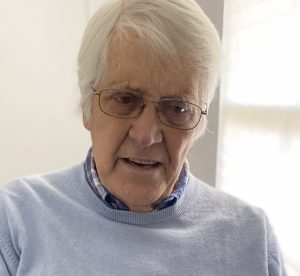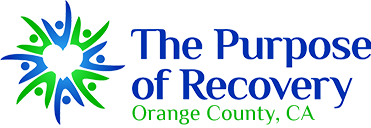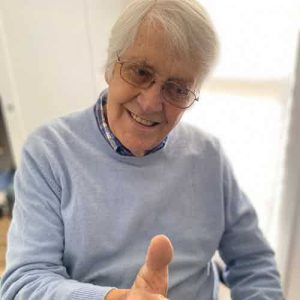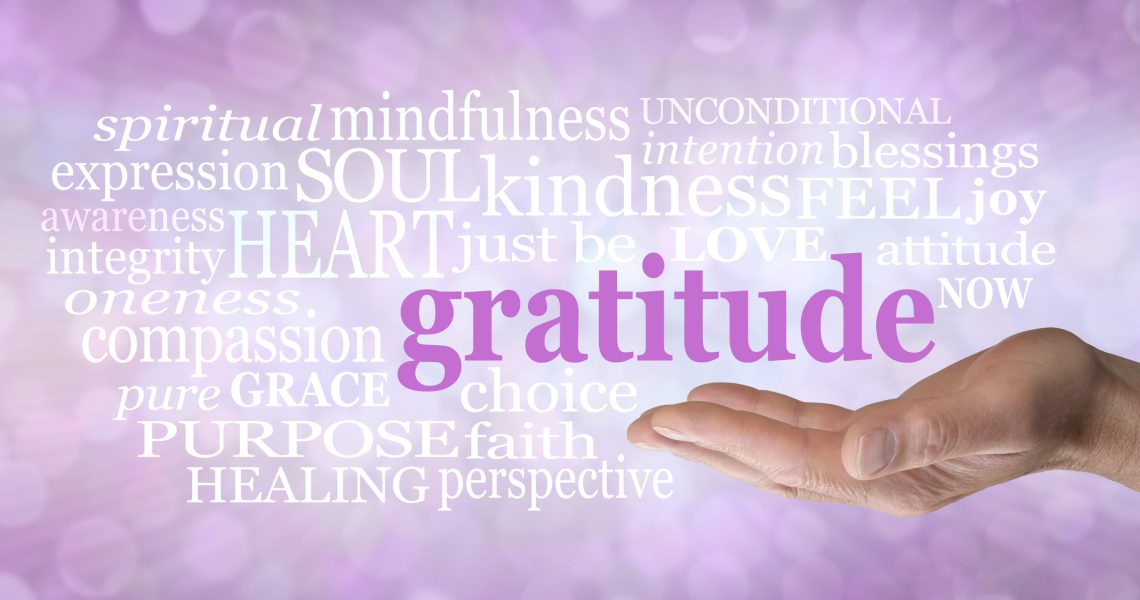The Grateful Deed
December 3, 2021 By Merlyn Karst
By Merlyn Karst
President, The Purpose of Recovery
karstmj@gmail.com
As a nation, we celebrated Thanksgiving with thankfulness and civility. It was indeed a grateful deed. Though we should give thanks for many things each day, we single out this day to express gratitude. As planned, it is a time of family, fellowship, food, and fun —as it should be. We still love parades and football. For those of us in active and sustained recovery it is a special day to gives thanks. Family dynamics may differ, cultures play a role, but at the core is thankfulness and gratitude with family and friends. Those who experience the fellowship of AA recognize that the two most favored subjects for meeting discussion are gratitude and acceptance. My activity in mindfulness always includes both. At this point, I will add a bit of humor. During Holidays at family gatherings, discussing politics may result in saving money on Christmas gifts. Considering inflation, it could benefit.
The pandemic changed this holiday event in so many ways. Gratitude was limited to thoughts of survival and “I don’t have it—yet” However, we could come together virtually and maybe be more forthcoming and open with feelings. No masks to show frowns and hide smiles. Holidays allow talk of many things and sometimes alcohol is involved. Alcohol is legal, cheap, available, and acts as intended and more. We do know that alcohol causes more family turmoil, distress, and death than the other drugs. Alcohol kills slower, but Fentanyl has now entered the picture which is quickly deadly, and family gatherings need to share this information. Addicts must take risks to avoid “dope sickness.” There can be hesitation to not upset, conversation if balanced with care and concern for each other, there can be help, hope, and healing where needed. All were present as my brother, bother-in-law, and I accumulated over 100 years of sobriety.
I am grateful and accept the science of addiction. It explains the why of “why doesn’t he/she just quit.” To know and understand the role of the brain in alcohol and other drug use is vital to living life with health and well-being. Naloxone (Narcan) is defined as an opioid antagonist and defies death from overdose. I am grateful and accept the knowledge of the many paths to, of, and in recovery from substance use disorders. I am grateful and accept the knowledge of the elements of harm reduction and medically assisted recovery. Both are a set of practical strategies and ideas aimed at reducing negative consequences associated with drug use. Just as the many paths to and of recovery do, it broadens the spectrum of chance, choice, and change and serves persons and families. In early recovery, the first steps are investigation and contemplation. Now there is more to contemplate. Another word to contemplate is one I just learned—gradualism. The goal can be abstinence but a commitment to a process and toward progress should prevail.
William White has written countless papers over the years. A most recent one is titled On the Shoulders of Giants, which honors the addiction treatment and recovery advocacy pioneers and profiles 35 people upon whose shoulders the infrastructure of our field stands. Among names I recognize are Bill Wilson, Jimmy Kinnon, and Jean Kilpatrick, founders of AA, NA, and Women in Sobriety, respectively. There are the more recent prominent pioneers such as Lillian Roth, 1910-1980, and Jason Robards, 1922-2000, who Bill says, “challenged prevailing stereotypes about addiction and addiction recovery through public disclosure of their own recovery stories.” Names I learned early on were the policy advocates who politically nurtured the birth and evolution of modern addiction understanding. (e.g., Marty Mann, 1904-1980, Senator Harold Hughes, 1922-1996, Senator Paul Wellstone, 1944-2002. I met Senator Wellstone and Betty Ford. I have maintained connections and associations “Beyond Betty” over the years. They include the Betty Ford Center, Hazelden, and the Children’s program. Bill White, whose shoulders I have perched on, said with gratitude to the many of those, “who stretched my mind, mentored my work, and showed me by their example how to conduct one’s life in this unique service ministry.“ I am personally grateful and so should the millions in active and sustained recovery be what for may be termed the grateful deeds of the pioneers and present advocates in the recovery movement.
There is no vaccine for addiction. However, choosing a path to recovery and choosing to be vaccinated for Covid both lead to health, well-being, and peace of mind. Both serve the person, family, and community. November is gratitude month and as it ends, we look forward to the next holidays. Though some don’t do deities, there is a Christ in Christmas. It is a time of caring and sharing. As I once read and wrote, before the sermon on the mount, Jesus was reported to have said. If you don’t believe in me, believe in what I teach. One of those teachings called for us to love one another. Happy Holidays, from The Purpose of Recovery Team
 JOIN THE DISCUSSION
JOIN THE DISCUSSION
Add your thoughts about The Grateful Deed by submitting your comments in the reply box below. All comments are moderated prior to being posted on the web site. Thank you.
ABOUT THE PURPOSE OF RECOVERY
 The Purpose of Recovery is a nonprofit, grassroots, peer-led recovery community in Orange County, CA. They connect with local, state, and national recovery communities to support long term recovery.
The Purpose of Recovery is a nonprofit, grassroots, peer-led recovery community in Orange County, CA. They connect with local, state, and national recovery communities to support long term recovery.
The Purpose of Recovery offers peer-to-peer support. Whether you are an individual in recovery from substance use disorder, a parent, partner, or concerned friend you will find peers who understand the unique challenges you face.
Learn more at https://thepurposeofrecovery.org/.

ABOUT THE AUTHOR
Merlyn Karst is a person in long-term recovery and a recovery advocate and Recovery Ambassador. He is a founder of Advocates for Recovery—Colorado and The Purpose of Recovery, California. Also, one of the founders of Faces and Voices of recovery. He is a writer and speaker about social issues surrounding the inappropriate use of alcohol and other drugs leading to substance use disorders, a mental health issue. He is particularly attentive to Peer driven support and services and their societal and economic benefits. They also provide reason and resources to reduce recidivism.
SUBMIT A GUEST BLOG
Are you interested in writing a guest blog for The Recovery Word? Click here for additional information.
